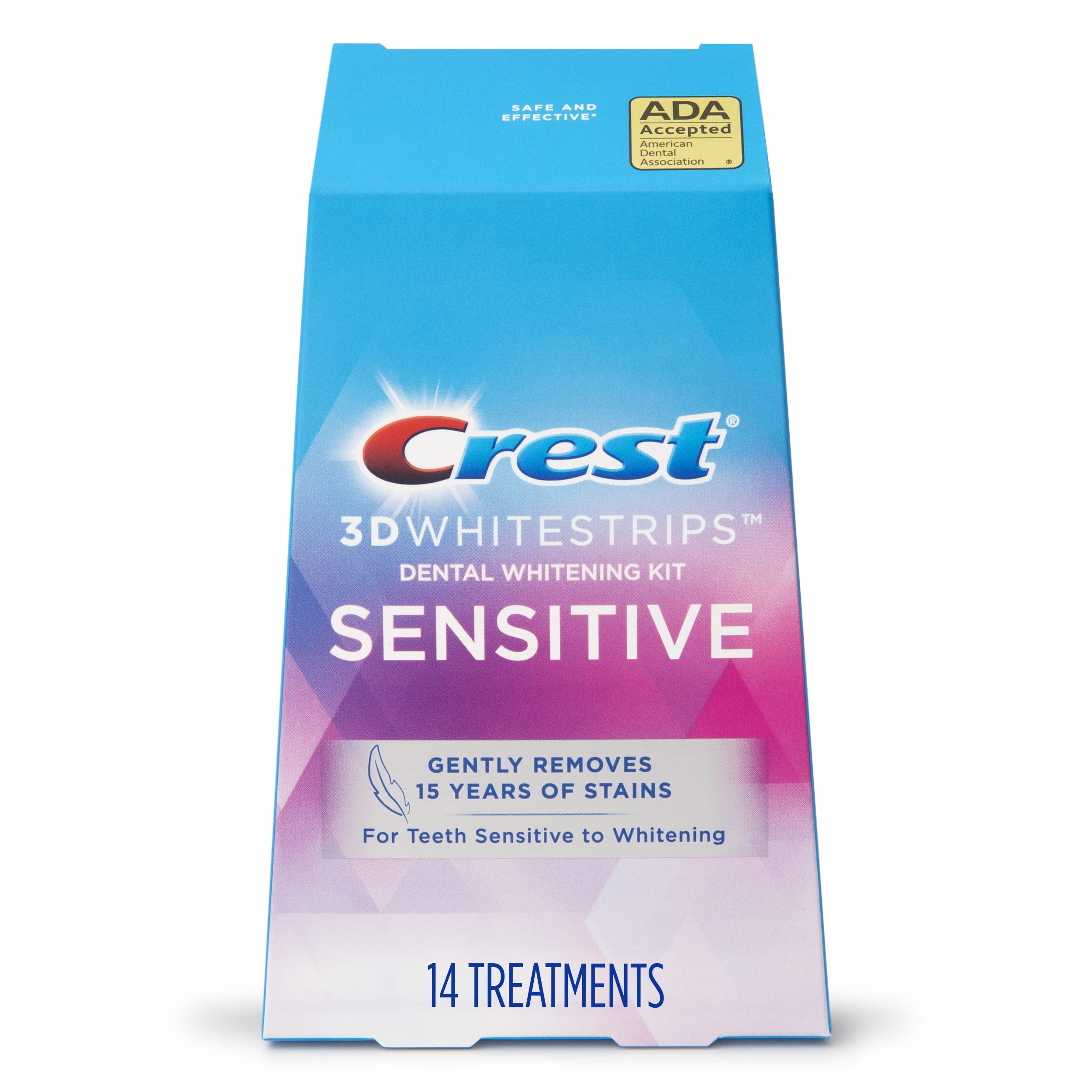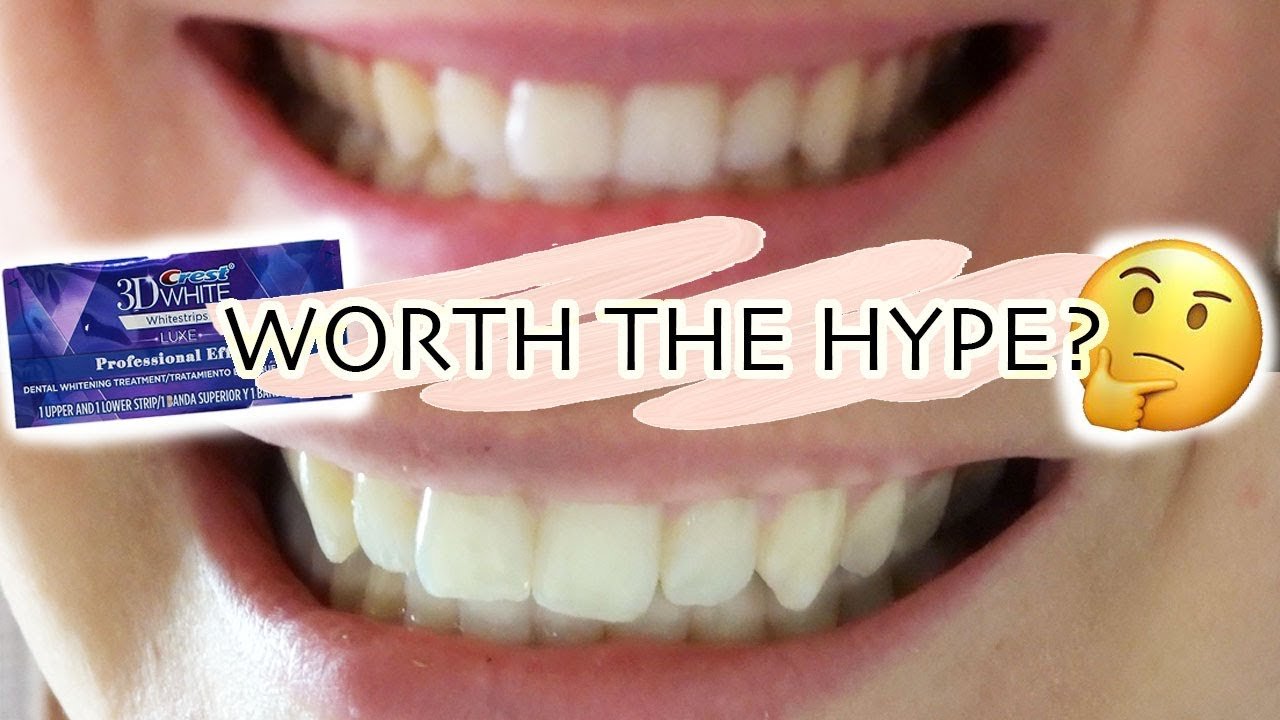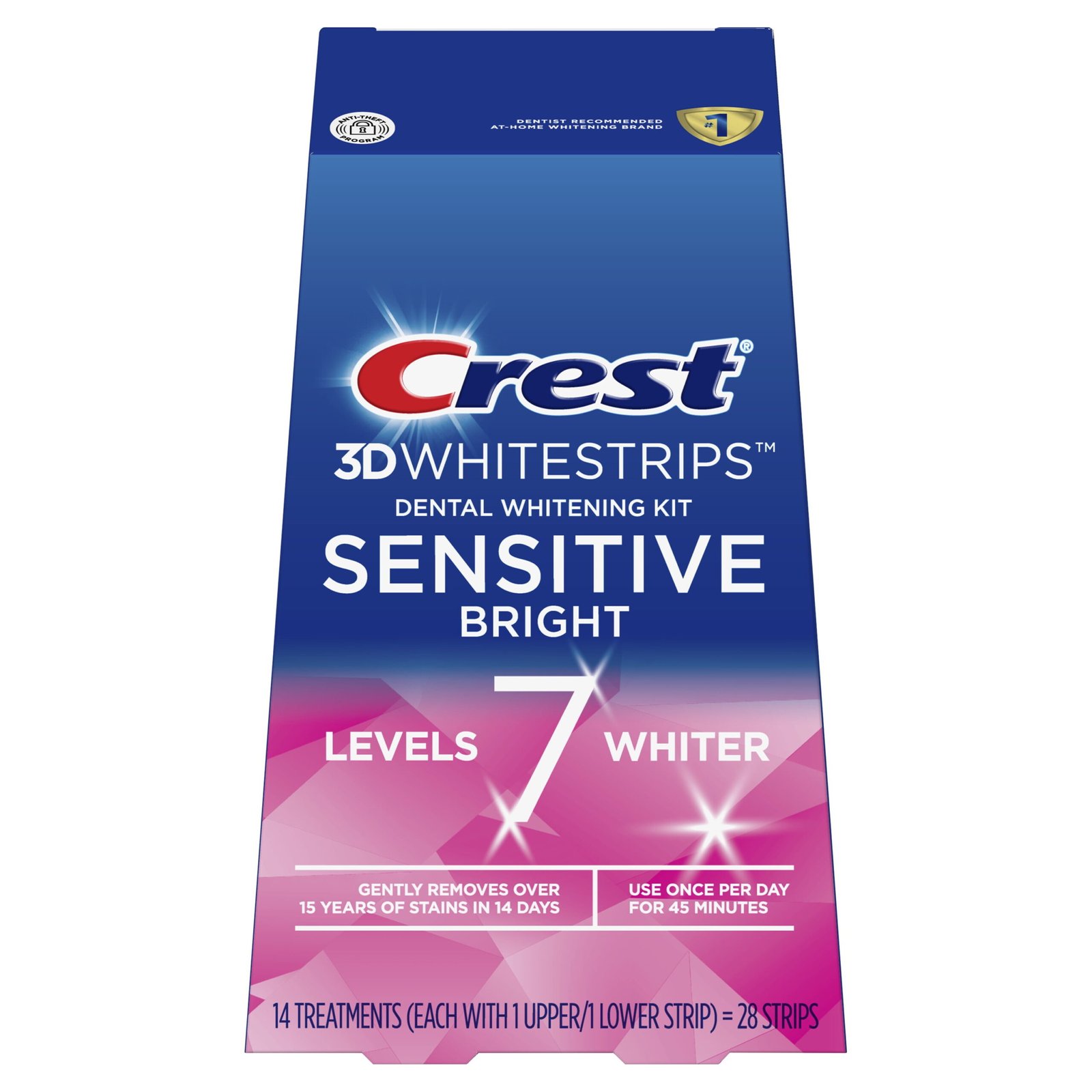If you’ve ever wondered if it’s safe to use teeth whitening strips on sensitive teeth, you’re not alone. Many people with sensitive teeth are eager to achieve a brighter smile but worry about potential discomfort or damage. In this article, we’ll explore whether or not teeth whitening strips are suitable for those with sensitive teeth, providing you with the information you need to make an informed decision.

This image is property of Amazon.com.
Understanding Teeth Sensitivity
Teeth sensitivity is a common dental issue that many people experience at some point in their lives. It refers to the discomfort or pain felt when consuming hot or cold foods and beverages, or when brushing and flossing. This sensitivity is often caused by the exposure of the inner layers of the tooth, such as the dentin, due to enamel erosion or gum recession. Understanding the causes of teeth sensitivity is essential in finding the right solutions and preventing further damage to your teeth.
Causes of Teeth Sensitivity
Enamel Erosion
Enamel erosion is one of the leading causes of teeth sensitivity. The enamel is the outer layer of your teeth that serves as a protective barrier. When enamel is worn down or eroded, it exposes the more sensitive dentin layer underneath. Acidic foods and drinks, aggressive brushing techniques, and certain medical conditions can contribute to enamel erosion.
Exposed Dentin
When the enamel is eroded or damaged, the dentin layer, which contains microscopic tubules that connect to the nerves of the teeth, becomes exposed. This can lead to heightened sensitivity to temperature and touch. Exposed dentin can result from enamel erosion, tooth decay, or even dental procedures such as teeth whitening treatments.
Gum Recession
Gum recession occurs when the gum tissue around the teeth pulls back, exposing the tooth roots. This can happen due to poor oral hygiene, gum disease, aggressive brushing, or simply aging. When the roots are exposed, they lack the protective layer of enamel, making them more prone to sensitivity.

This image is property of i.ytimg.com.
Teeth Whitening Strips
Teeth whitening strips have gained popularity as an affordable and convenient option for achieving a brighter smile. These thin, flexible strips are coated with a gel-like solution that contains active ingredients responsible for removing stains from the teeth. While teeth whitening strips are generally safe and effective, it is important to consider their suitability for individuals with sensitive teeth.
How Teeth Whitening Strips Work
Teeth whitening strips work by delivering a bleaching agent to the teeth that breaks down stains and discoloration. These strips are typically worn for a specified period, allowing the active ingredients to penetrate the enamel and whiten the teeth. The frequency and duration of usage may vary depending on the brand and concentration of the whitening solution in the strips.

This image is property of i5.walmartimages.com.
Active Ingredients in Teeth Whitening Strips
The active ingredients found in teeth whitening strips can vary, but the most common one is hydrogen peroxide or carbamide peroxide. These ingredients work by oxidizing the molecules that cause stains on the teeth, effectively lightening the shade of the enamel. The concentration of these ingredients varies between different brands and types of whitening strips.
Potential Side Effects of Teeth Whitening Strips
While teeth whitening strips can be an effective way to brighten your smile, they do come with potential side effects. Some individuals may experience tooth sensitivity or gum irritation after using whitening strips. This sensitivity can be temporary or last longer depending on the individual’s oral health and the sensitivity of their teeth. It is essential to follow the instructions provided by the manufacturer to minimize the risk of side effects.

This image is property of shopzimba.com.
Are Teeth Whitening Strips Suitable for Sensitive Teeth?
Teeth whitening strips are not recommended for individuals with severe teeth sensitivity. The bleaching agents in the strips can further irritate the nerves and exacerbate the discomfort experienced by those with sensitive teeth. However, for individuals with mild to moderate sensitivity, there are specially formulated whitening strips available that cater to their needs. These strips often have lower concentrations of bleaching agents and may include ingredients that help reduce sensitivity.
Consulting Your Dentist
If you have sensitive teeth and are considering using teeth whitening strips, it is always best to consult with your dentist first. They can assess the underlying cause of your sensitivity and determine whether whitening strips are suitable for you. Your dentist may recommend alternative teeth whitening options or suggest specific strategies to manage your tooth sensitivity before and after the whitening process.

This image is property of murfreesborofamilydentistry.com.
Alternative Teeth Whitening Options
For individuals with sensitive teeth, there are alternative teeth whitening options that may be more suitable and effective. These options include:
Whitening Toothpaste
Whitening toothpaste contains mild abrasives and chemical agents that help remove surface stains from the teeth. Unlike whitening strips, toothpaste does not require prolonged exposure and may be a gentler option for individuals with sensitive teeth. It is important to note that whitening toothpaste may not provide the same level of effectiveness as whitening strips or professional treatments.
Professional Teeth Whitening
Professional teeth whitening treatments performed by a dentist can be a safer alternative for individuals with sensitive teeth. Dentists have access to higher strength whitening solutions and can tailor the treatment to your specific needs. They can also take additional measures to protect the gums and minimize tooth sensitivity during the procedure.
Natural Remedies
Some individuals opt for natural remedies to whiten their teeth, especially if they have sensitive teeth. These remedies include oil pulling, baking soda, and hydrogen peroxide rinses. While these methods may be gentler, they may not provide the same level of efficacy as other professional whitening options.
Preventing Teeth Sensitivity
Taking measures to prevent teeth sensitivity is crucial for maintaining good oral health. Here are some preventive steps you can take:
Using a Soft-Bristled Toothbrush
Using a soft-bristled toothbrush can help prevent further enamel erosion and gum recession. Hard bristles can be abrasive and potentially damage the enamel, leading to increased sensitivity.
Avoiding Acidic Foods and Drinks
Consuming acidic foods and drinks can contribute to enamel erosion and teeth sensitivity. Limiting your intake of acidic beverages like citrus juices and sodas, as well as acidic fruits and vinegar-based foods, can help protect your enamel.
Using a Sensitivity Toothpaste
Using toothpaste specifically formulated for sensitive teeth can help alleviate discomfort and strengthen the enamel. These toothpastes often contain ingredients like potassium nitrate or fluoride, which can desensitize the nerves and provide additional protection for the teeth.
By understanding the causes of teeth sensitivity, exploring alternative whitening options, and taking preventive measures, you can effectively manage your teeth sensitivity while still achieving a brighter smile. Remember to consult with your dentist to determine the best course of action for your specific dental needs. With the right approach and care, you can enjoy a dazzling smile without compromising your oral health.